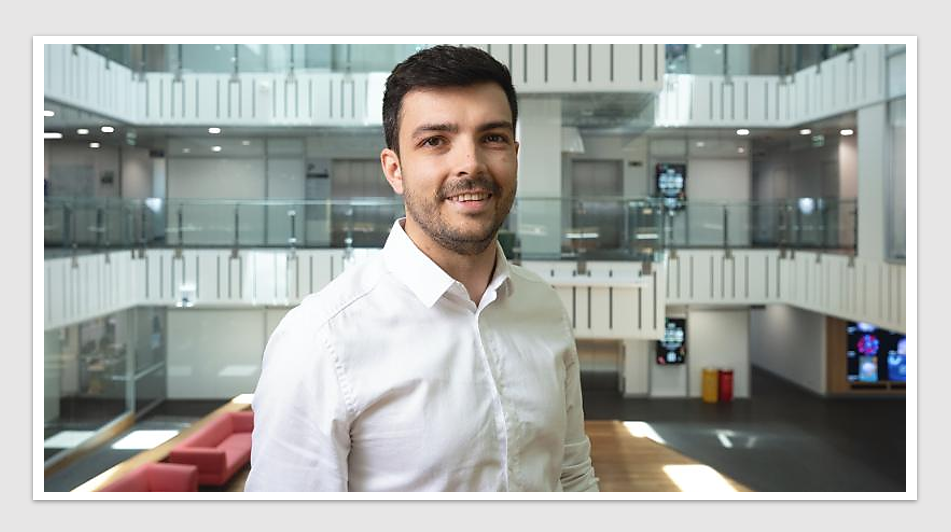Best Practice
How perfectionism may be holding you back
Perfectionism sounds like a good thing. After all, who doesn’t want to be perfect? Especially in the workplace, where you’re striving to be noticed in a crowd, it’s easy to see perfectionism as a goal.
But a wealth of studies have found that, in fact, the quest for perfection may have more flaws than features. It can lead to stress and anxiety, and it can also stand in the way of our career satisfaction. The desire to have everything perfect can often lead to procrastination and avoidance behaviours because perfectionists are so averse to making mistakes.
We take a look at why perfectionism might be standing in your way, how to spot if you have a problem, and the steps you can take to address it.
The problem with perfectionism
Being a perfectionist is stressful. Nothing you achieve feels good enough. In addition, perfectionist tendencies often make people risk-averse. That means that you’re less likely to want to take on challenges at work or pursue opportunities that aren’t a sure thing.
Perfectionists are also reluctant to innovate. By avoiding trying new things, you’ll avoid the failures, but also miss out on those successes.
Because perfectionists are constantly worrying about the possibility of failure, they also overwhelmingly suffer from stress and anxiety. That, in turn, can lead to health problems including depression, anxiety and fatigue.
How to tell if you’re a perfectionist
It can be hard to tell if you’re just diligent and hardworking, or if your disposition veers into unhealthy perfectionism. Here are some signs to look for:
You’re an all-or-nothing thinker
High achievers aim high, but as long as the project is a success, they’ll be satisfied. Perfectionists aim equally high, but instead of being pleased with what they’ve achieved, they’ll focus on the minor mistake that mars it.
If you tend to see anything less than perfection as failure, you’re more likely to be a perfectionist.
You fear failure
Perfectionists focus on results rather than process, leaving them vulnerable to the fear of failure. Because failure is seen as such a big deal, they’ll worry about the possibility of not succeeding and often won’t try at all. Perfectionism and procrastination, therefore, go hand in hand.
That stands in contrast to high achievers, who will feel disappointed by failure but are happy to learn from the process and focus on the bits that did go well.
You have low self-esteem
Because perfectionists focus on their failures and flaws instead of their successes, they’re likely to suffer from low self-esteem. In addition, their tendency to demand similar standards from others may find them isolated. Perfectionists are always falling short of their own goals and find it hard to be kind to themselves, leading to anxiety and stress.
How to overcome perfectionist traits
Try something new
Often, perfectionists are reluctant to step outside their comfort zone because they fear making mistakes. That can lead to paralysis: you tell yourself that you’ll start a new project or take on that challenge when you’re really ready, but that day never comes.
Trying something completely new is a way of taking action before you’re ready. And because it’s new, nobody expects you to be perfect at it. You shouldn’t either.
Break down tasks
If your perfectionism takes the form of procrastination, try breaking down tasks into smaller chunks. Since procrastination is often about fear of failure, it can be less daunting to address a simple task first before the larger ones. Often, the momentum you gain from having completed that first step gives you the courage to carry on.
Practice vulnerability
Mistakes are human, and owning your mistakes makes you more relatable to others. If you allow yourself to admit mistakes, you’re likely to find a few things: Others will more readily share their own mistakes, helping to normalise it, and you’ll become more comfortable with the idea that your worth isn’t diminished if you’re less than perfect.
Try starting small: admit a minor mistake out loud to a loved one or trusted colleague. Their reaction might surprise you in how accepting they are.
Source: www.aib.edu.au
News & Trends - MedTech & Diagnostics

Stryker partners with local researchers to advance shoulder joint surgery
MedTech & Diagnostics News: Joint replacement is a commonly performed major surgical procedure that has considerable success in alleviating pain […]
MoreNews & Trends - Pharmaceuticals

Over two-thirds of Aussies missing healthcare appointments
Pharma News: Over 70% of Australians have postponed or cancelled healthcare appointments in the last 12 months. The primary reason […]
MoreNews & Trends - Pharmaceuticals

Opposition decries incremental change as New Zealand government defends Pharmac budget
Pharma News: New Zealand’s Associate Health Minister has made headlines by unveiling Pharmac’s largest ever budget of $6.294 billion over […]
MoreMedical

Telehealth’s 10-year leap in 10 days: Reshaping hospital EDs
Medical: As overcrowding and ramping continue to challenge emergency departments across Australia, the concept of virtual emergency departments (EDs) emerges […]
More